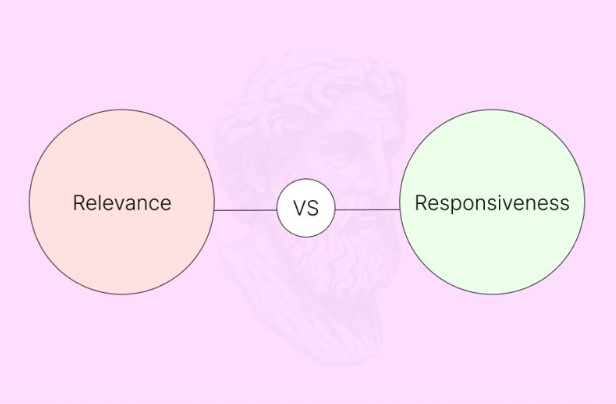📚 Information Responsiveness vs. Relevance in Information Retrieval

🔍 Information responsiveness is not the same as relevance in information retrieval.
✅ Relevance is related to the Information Retrieval Score, which comes from various text processing methodologies such as:
- 📏 Term Saturation
- 📐 Length Normalization
- 🔢 Co-occurrence Matrix Construction
- 📊 BM25
- 🧮 TF-IDF
- 🧠 GloVe
- 💬 Word2Vec
📌 But, Responsiveness is a direct Information Extraction Process.
👉 It requires a direct answer to the query that satisfies the possible or related search activities of the searcher.
💡 To provide responsiveness, the web document must address all possible needs behind the query.
🧠 Example Query:
🌱 What are the causes of Alzheimer’s disease?
This query can be answered in multiple ways:
- 1️⃣ Relevant but not fully responsive:
👉🏼 The causes of Alzheimer’s disease vary depending on various factors. - 2️⃣ Responsive and more helpful:
👉🏼 The causes of Alzheimer’s disease include a combination of age-related changes in the brain, along with genetic, environmental, and lifestyle factors.
🔍 The first answer is relevant, but not fully responsive.
✨ The second answer is more responsive, providing greater clarity and helpfulness for those searching.
🎯 Why Responsiveness Matters:
- ✅ It ensures the content is not just relevant but truly helpful.
- ✅ It increases content quality and user satisfaction.
⛳️ Always aim to make your content both relevant and responsive to user queries.
